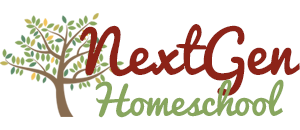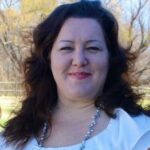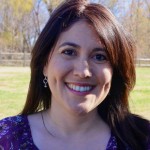“Ask a NextGen Homeschooler” is your turn to ask our authors — formerly homeschooled moms who are now homeschooling our children — to weigh in on your homeschooling questions. We welcome all of your questions, whether you’re looking for practical tips or support and encouragement!
This week’s question was brought up in a discussion with a first-year homeschool mom:
I feel like the end of this school year is coming much faster that I want it to, and I’m worried that I need to finish every textbook and lesson from the curriculum that we’re using right now. I don’t want to rush through it, and I’m also fairly certain I’ll be making some curriculum changes going forward. Can I start something new or start the school year fresh without completing everything in the curriculum we have now? Must I finish every textbook?

Today my sister-in-law Rosanna Ward and I will share our take on this topic:
NextGen Homeschool Author Rosanna Ward
Was homeschooled since 8th grade
Began homeschooling in 2005
Two homeschool graduate daughters, two sons ages 9 & 3
In a word, no. For one thing, public school classrooms rarely finish a whole textbook. The beginning of the school year is spent reviewing what the students learned or were supposed to learn the year before, and the end of the year is spent trying to hit the high points in the short time left before summer break.
As a homeschool teacher, you get to decide how much of a textbook your children should finish. My daughters did not enjoy science at all, and several years in a row, we were coming close to the end of a year with only two-thirds of their science textbooks finished. At that point, I searched through and cherry picked what I thought was important for them to learn. I did this by looking at the scope and sequence of what they needed to learn and talking to them about what they already knew. Then I went through the rest of the book and chose which chapters they needed to finish, which experiments they needed to do, etc.
Personally, I enjoy history, so we usually get through our history curriculum. However, this year I feel like we hurried through some really fun units so that we could stay “on track” with the lesson plan to be done with our Story of the World curriculum by the end of the school year. What I should have done is spent the extra time on the fun units and skipped some of the more boring chapters.
Many homeschoolers don’t use textbooks at all: They use a combination of living books and other resources to teach subjects such as history and science. Ultimately, the most important thing is making sure your children learn the things they need to know to get to where they want to go.
So don’t feel pressured to finish a complete textbook by the end of the school year, or to finish every assignment in your curriculum’s lesson plan. If you feel like your child should cover all the information at the end of a particular textbook, you can teach them through the summer or start with that textbook again in the fall. It is much more important to spend time making sure they understand what they have learned and enjoying the learning process than finishing a book by a certain day on the calendar.
NextGen Homeschool Editor Renée Gotcher
Was homeschooled in 11-12th grade
Began homeschooling in 2010
Three daughters ages 13, 11 and 6
I remember feeling exactly the same way in the spring of our first homeschooling year. We had been using My Father’s World, and although I really loved the books that came in the boxed package, my daughters and I desired a more integrated learning experience than the suggested lesson plan offered. So we had supplemented with lots of additional reading, movies, projects, and field trips — and I found myself quite “behind” when it came to finishing all of the provided material.
After talking to my husband, my sister-in-law, and supportive homeschooling mama friends, I realized I didn’t have a clear homeschooling “mission” for our family. Was our goal to replicate traditional classroom school at home? What was more important: Checking off boxes on a to-do list from a curriculum publisher or encouraging my daughters to think outside the box and develop a love for learning? Why are we homeschooling in the first place?
After much prayer, discussion with my husband, and seeking God’s word for wisdom, we developed a clear mission statement for our family’s homeschool. Against this new mission statement, the answer to my dilemma was quite clear: No, I don’t need to finish all this material for the sake of “finishing” the school year.
A traditional school approach is not our standard, and neither is the lesson plan of any particular curriculum publisher — or the pace and process of other homeschooling families we know. And I don’t think these external influences should limit you, either.
As 20-year homeschooling veteran Lori Lane recently shared with our homeschool group:
“God is an out-of-the-box Creator: Give yourself permission to homeschool outside the box. I give you permission to tear the box open and let yourself out.” — Lori Lane, Artios Academies
Even though we’ve been homeschooling for four years now, and I’m very happy with the curriculum we’re using as the “spine” to our homeschooling, it was encouraging to hear these words from a homeschool veteran who’s been in our shoes and found freedom and success in her homeschooling journey. I find that at this time of year, I do need to remind myself that our “why” is more important than “how” we homeschool. So I give YOU permission to tear the box open, let yourself out, discover your family’s why, and make decisions that support your mission!
Do you feel compelled to check off every to-do in your curriculum’s lesson plan? Are you worried about “finishing” your curriculum before the planned end to your homeschool year? Have you ever felt the need to make changes before the school year or curriculum package was completed? What changes have you made that have turned things around for you and your children?




Thanks ladies! Always a good reminder!!!
🙂
We used textbooks as reference books, to supplement information that my kids (and I, sometimes) were learning in more natural, creative, and holistic ways. We did not choose to let some textbook publisher, who knows nothing about our interests, talents, and learning styles, dictate what and when we should learn about our world.
We also did NOT think of the public school system as our basic model for education. I suppose that thinking/living outside that box was easier for me than for most homeschooling parents, as I did not attend public schools as a child myself. I attended small private schools that were just slightly different enough from the public schools that I knew that there are lots of different ways of approaching education. In the schools I attended, we used textbooks for some classes, but not all classes. And even in those classes where we had a textbook, the teachers never seemed particularly concerned with working through the whole book, or using ONLY the textbook to determine what we learned.
As homeschooling parents, we have the freedom and the right to decide, with our kids, what subjects/topics to learn, at what pace, and which resources to use. We have a whole world of resources to choose from! Think of textbooks as a type of encyclopedia! If you need to find some information about a topic, look it up in the glossary and read about it. Read it aloud together with your kids – taking turns reading aloud to each other. Discuss what you read. If you or the kids have any questions about it, look up more information online, or in the real world.
If it’s science, and “experiments” are suggested (textbook “experiments” are often not really experiments at all, but rather, demonstrations where the outcome is known ahead of time), feel free to either do them or not – and/or look up – or think of your own – other ideas for experiments or demonstrations. Try and make the science information as “real” and tangible as possible. Just as “a picture is worth a thousand words”, an object or experience that your kids can touch, see, hear, or smell (or occasionally taste) is worth a thousand pictures or a million words! 🙂
If it’s history, use information on various websites, read historical fiction, go to real places that relate to the history being studied (including museums), dress up in costumes from the time period being studied, look at art and artifacts from the time period, and read samples of actual poetry, literature, and documents from that time, when applicable. Listen to music from the culture and time period, if any exists.
Studying ancient Greece? Print out a chart of the Greek Alphabet and learn a bit of Greek! Eat some Greek foods! Read the mythology and compare it to the Percy Jackson series, etc. Make it fun and interesting and relevant. And don’t worry about working through an entire curriculum, if you and your kids want to spend more time on a topic that you are all enjoying. Studying one aspect of history or science in depth is worth more than a broad, shallow overview of a bunch of topics in that subject area, if it leads to a lifelong love of learning!
Thank you for sharing so many great ideas, Linda! I love to hear from other parents who experienced alternative education themselves as students, and how that shapes what you do with your children.
We agree that there are so many ways for children to learn and interact with subjects such as history & science beyond a textbook format curriculum. When I was homeschooled, we used a combination of textbook curriculum (in math, for example) but read many other sources for history and other subjects. I think it’s important for new homeschoolers to know that they have complete freedom to use a variety of educational tools and know that their child won’t “miss out” if they don’t complete the recommended guidelines that often accompany subject-based homeschool curriculum.